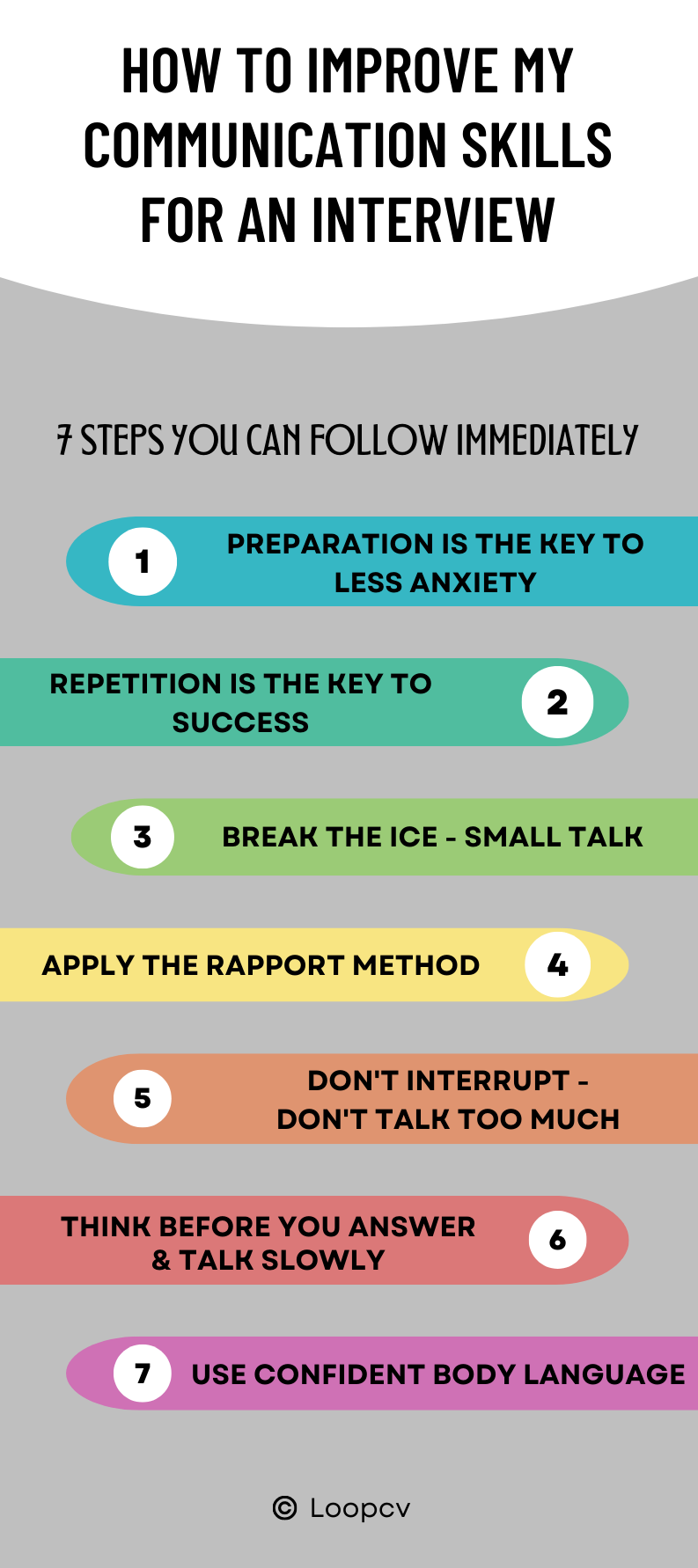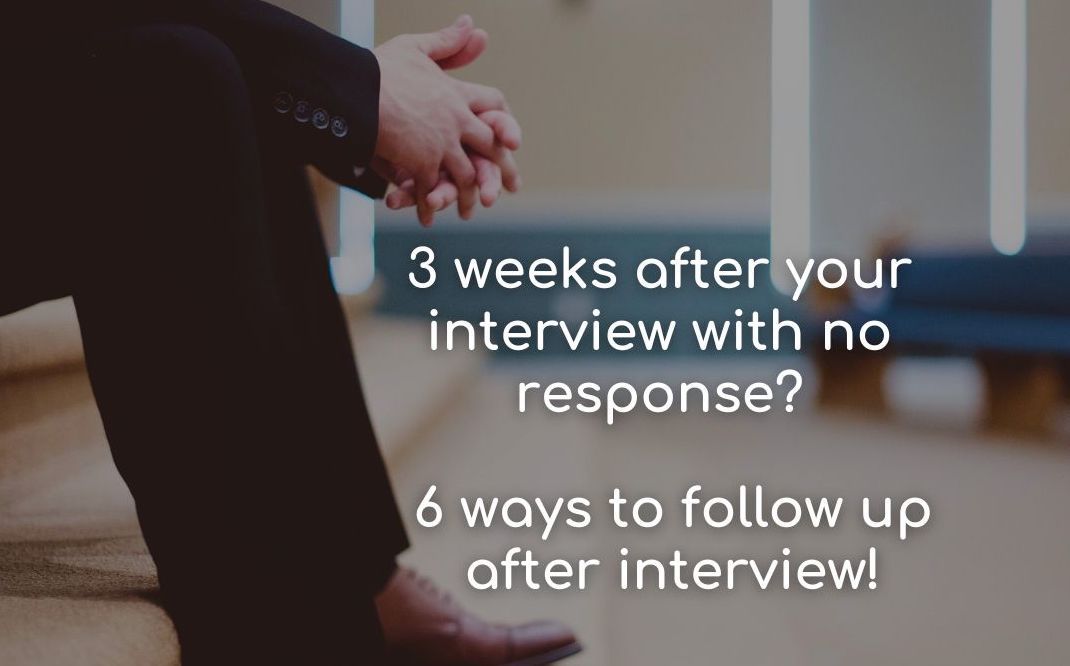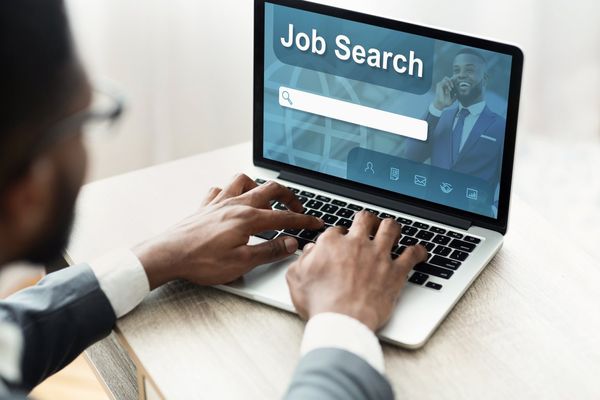How to Improve my Communication Skills for an Interview
You made it. You reached the step of scheduling your job interviews! It's very hard to get there as you've done numerous job applications.
You have sent numerous cold emails, follow-up emails and called the responsible job posters. So, take a breath now and enjoy your accomplishment.
As you are preparing for your interview, you realize that your anxiety-stress levels and your ability to communicate the experience, education, and skills you have, are hard to come out of your mouth... This is the so called, lack of communication skills.
This should be the first sample of the improvement that needs to be done with your communication skills.
No, worries, it's something that can be fixed. Some people are naturally good communicators, but for the rest of us, there are some exercises and steps to follow in order to reach a great level of communication. Especially, when our next job depends on that.
Check out 7 steps on how to improve your communication skills for an interview!

» FREE TRIAL: Get Started with LoopCV & Send Out 100s of Highly-Targeted Job Applications in <10 Minutes
1. Preparation is the key to less anxiety
When you go in for a job interview, the hiring manager will ask you about your communication skills, including how you handle difficult situations, how you deal with problems, what kind of communication you want from management, and other similar questions.
Even the most skilled communicator may find interviews difficult. In order to respond well, you must strike a balance between paying attention to what the interviewer is saying and giving thoughtful answers.
Take the time to practice interviewing if you need to sharpen your skills. It would be simpler for you to demonstrate your communication skills the more at ease you are in the position of the interviewee.
With a friend or member of your family, or simply by yourself in front of a mirror, or your computer, practice conducting interviews. Despite the fact that it's not a "real" interview, you will be able to prepare in advance for how you will react and interact with the interviewer.
Also, what I do before interviews is to practice with LinkedIn Interview tips and questions.
You can obviously find ton of sources online which can suggest you similar questions and answers. I just prefer this, because I am already quite active on LinkedIn.
So, create your list of top questions, personalize your answers, and make it as interactive and realistic as possible. Like a real interview!
2. Repetition is the key to success
You created your list of the most possible to be asked questions and prepared your answers. You practiced your tone of voice and the way you will be responding.
But, something is still missing in order to be 100% ready for the interview. This is repetition.
- Repeat the answers in your mind before the interview.
As Greeks say "Repetition is the mother of all learning".
- Repeat yourself during the interview.
The more we emphasize something, the more clearly our listeners will remember it.
You should employ this system in your interview in a balanced manner. When an interviewer poses the same question differently, this frequently occurs.
If so, these are excellent clues that the interviewer is interested in learning more about a specific ability you have. So, don't hesitate to repeat yourself and make some points bold.
3. Break the ice - Small talk
Often, job interview communication will begin with a small talk. Such as questions about how you got to the interview, the weather, the place you live and so on.
My suggestion over experience and discussions with other people that went through this phase successfully is to:
- Respond in a conversational tone, but avoid over communicating. Share a normal amount of information. Mimic the length of the interviewer's answer.
- Avoid mentioning problems or negatives, such as how bad the traffic was. Starting with a negative tone, might set the mood of the whole interview.
- Prepare a few polite conversational-type remarks for this small talk phase, such as complimenting the building or surroundings. The background if it's an online interview.
You can work on these while waiting for the interviewer.
4. Apply the rapport method
Okay, let's learn a cool thing now. Before heading to the rapport method, keep in mind perhaps the best advice I ever had.
Matching your communication style to that of the interviewer is an important tip for job interviews.
If the interviewer is very business-like, you should respond in kind. Avoid telling jokes or funny stories. If the interviewer is more casual and chatty, adjust your communication style by responding in a more casual tone while still demonstrating respect!
The tone of the interview should be set by the interviewer, not the candidate. A good interviewer will make an effort to put the candidate at ease.
However, this should not be interpreted as an attempt to be your friend! Always approach a job interview as if it were a professional meeting.
There is no better way to explain the rapport method than Tony Robbins. Check the video below. Mirroring and matching your interviewers style will make them like you more and remember you!
5. Don't interrupt - Don't talk too much
One of the most important job interview communication tips is to avoid interrupting the interviewer.
Before you respond, make sure they have finished talking. You can accomplish this by allowing a brief pause before beginning to speak. It is very important for the transmitter to feel respected.
Taking a few moments to consider a question rather than rushing to answer allows you to organize your thoughts and avoids verbal fillers like "eehm" and "uum" or "you know."
Listen to the question, make sure you understand what is being asked, and respond with the information. If you understand, then ask politely to repeat their question. Don't rush for replies, rush for understanding.
- If you are unsure what the interviewer means or wants, it is best to ask for clarification.
- Don't guess or make assumptions. Doing so, usually, results in an incorrect response.
- It is not necessary to fill silences with unnecessary rambling. Silences will occur naturally as the interviewer collects their thoughts or formulates the next question. It is important to be at ease with silences.
Candidates who are nervous during an interview may over-communicate. Overcoming interview anxiety will allow you to communicate more effectively during your job interview.
6. Think before you answer & Talk slowly
Listening is a crucial soft skill that shows a person's capacity for information reception and interpretation during communication and will provide amazing outcomes. We only have one mouth and two ears so that we can listen more and speak less.
Every good conversation begins with good listening, therefore if you are a good listener who pays attention to the speaker, you may also be a good speaker. However, listening is twice as difficult as talking.
Tips on how to talk slowly and with clarity:
- Time your presentation starting to conclusion with a stopwatch. Generally speaking, your preparation time will be less than your actual presentation, which will probably last a little longer as you adjust to the audience's enthusiasm and the surroundings.
- It's best to exclude the least necessary information if you're practicing and running long, than trying to rush through the complete speech. Making every word count is the key to winning, not saying everything, and then feeling satisfied with your greater word count.
- Focus on enunciating your words to help you talk more slowly. Additionally, doing so will make your message more understandable.
- Take a deep breath, unwind, and observe your surroundings before you talk.
7. Use confident body language
The way you sit conveys a variety of issues, including how nervous or comfortable you are and your understanding of the interview process.
Facial expressions are highly effective communicators. It is critical to maintain control over your facial expressions. Don't showcase much of an emotion. Again, mimic your interviewer is the best tip.
Smiling, nodding your head, eye contact, hands and arms, handshake, dress and appearance are all powerful interview communicators!
Things to do:
- One common error you can do while using video is to check at yourself while being interviewed. Instead, try to focus straight on the camera. You can practice by thinking the camera is a person while staring at it. That will have a significant impact on how well you connect with the interviewer!
- Even on an online set, jittery movements made during an interview might be distracting. Avoid shaking your leg, spinning your hair, or fidgeting with your hands. Even if your leg is hidden from view on the camera, your body will still be in motion. So, your nervousness will be visible as well.
- If you're doing a virtual interview, place the camera at the eye level and stand where you can be seen from both sides!
Here are some things to avoid:
- Sit with your legs spread apart.
- Taking a step back.
- Excessive forward leaning.
- Slouching.
- Keeping your legs crossed at the thighs.
In a job interview, there is a difference between acting confident and being confident. It's critical to know your worth and interact with the interviewer in a way that makes you feel powerful rather than helpless. Positive and negative confidence are two totally different types of confidence.
» FREE TRIAL: Get Started with LoopCV & Send Out 100s of Highly-Targeted Job Applications in <10 Minutes
An extra tip is to know what you don't need to do!
- Don't go overboard. Sometimes talking less is better for communication than saying more. Keep your responses focused and succinct.
- Don't forget to concentrate. One of the most crucial communication skills is listening. Prior to answering, pay close attention to the question being asked so that your response is appropriate.
- Remain upbeat. If you answer, make sure to do so in a good manner. Your comments will aid in demonstrating your communication skills to the interviewer.
In conclusion
Being at a job interview is stressful and demanding for everyone. Even the best communicators out there might feel their anxiety levels rising and as a result to struggle with their answers and forget the importance of their body language!
So, make sure that you will follow all the above steps and tips and your successful interview outcome will be one step closer!
Good luck!
You can also read our articles:






